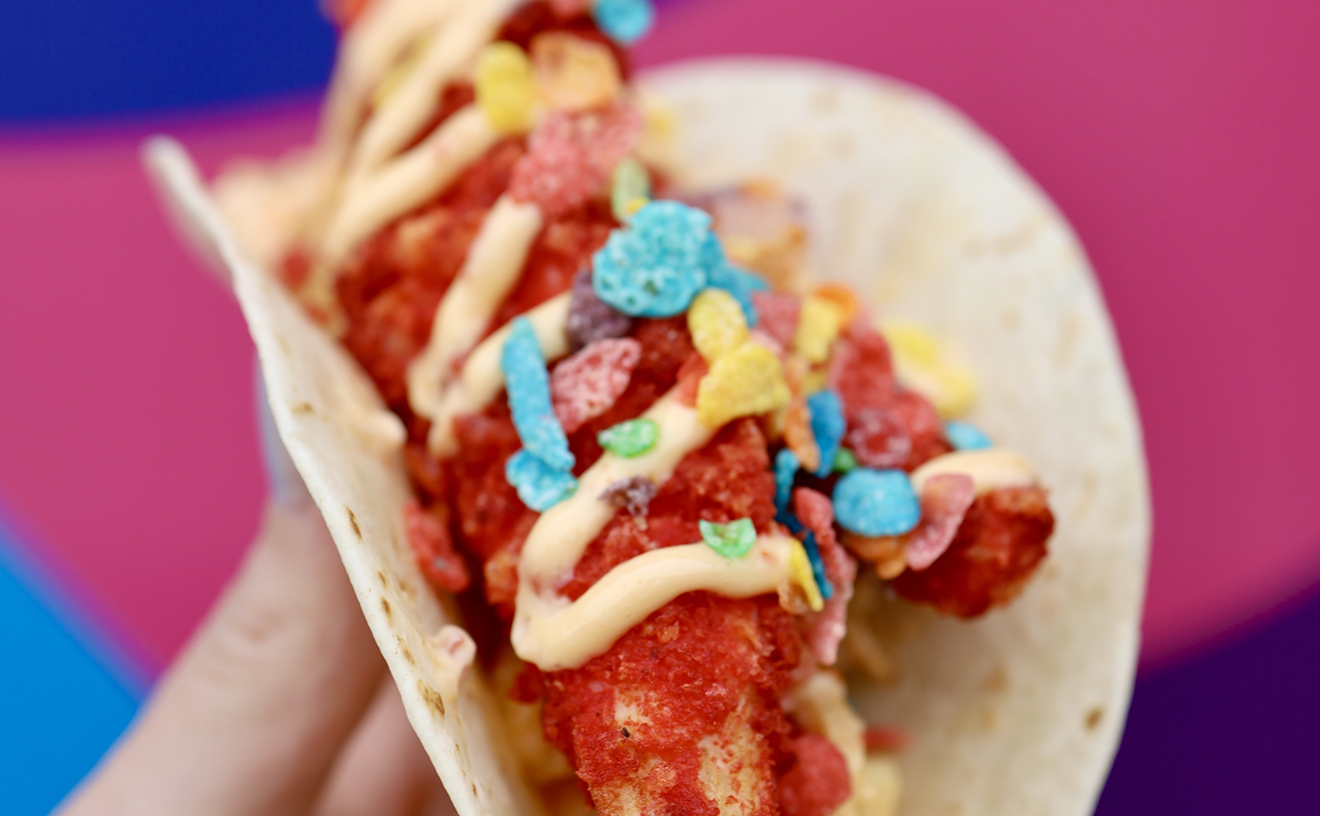In his brief time at Soleá, Marc Vidal has captured the palates of critics and diners with what he describes as classic Spanish flavors with a modern touch. Now the restaurant with the 32-year-old at its helm has earned a James Beard nomination for Best New Restaurant.
Vidal started young, helping out at his family's Barcelona restaurant. After studying at the Escuela de Restauracion y Hosteleria in Barcelona, he learned from some of the world's greatest starting with a stage at Ferran Adria's El Bulli and then moving to Paris to learn from Alain Passard at L'Arpege and Alain Ducasse at Hotel Plaza Athénée. In 2002, he returned to Barcelona as executive chef of OT and later opened Visual before moving Miami in 2007 to take the role of executive chef at Por Fin.
Since excellence in food is one of the criteria for the award, which recognizes a restaurant opened in the last calendar year that also demonstrates excellence in service and beverage, we caught up with Vidal to talk about his new gig and the nomination. Following is a translation of our talk.
New Times: How did you learn about Solea's nomination?
Marc Vidal: I received an email from our PR agency.
Were you surprised?
Truthfully I had heard about the James Beard but since I'm
from Spain I didn't realize how important they were. I started
receiving emails and phone calls from people congratulating me and I
realized how important the nomination was.
What was the team's reaction?
Everyone is very happy. The good thing is that in the three
months since I arrived and we changed the restaurant's concept a bit,
there has been a great energy with the team. From the pastry chef to those who brought me here. From the beginning they
have given me carte blanche to create what I think is Spanish
gastronomy that you can eat anywhere, a little traditional but done
well. Everything is a team effort. That's the basis of everything.
I arrived to the restaurant in November and we spent the first 15 days doing tastings with a lot of dishes. We tasted a bunch of things and decided what fit in the menu. Little by little we change it to conform to the clients.
Does the menu change often?
We've changed some dishes. There's a lobster that we served whole with its head on like it's served in Spain but people didn't like that so we had to change it a bit. We couldn't do it exactly like it's done in Spain. What we seek is to have good ingredients and create dishes based on those ingredients. We bring some very good sardines from Spain and chanquetes, which is a tiny fish that's very good but difficult to find. We'll adapt as we go. Everything has happened very fast, it's been three months but for me it's like it started yesterday.
It's only been three months but the restaurant has received a lot of praise.
Yes, people are responding very well. I think that Miami Beach needed a good Spanish restaurant. I was in Coral Gables before and there you can find more Spanish options but there's not much in Miami Beach.
The idea is for people to sit down to eat at our restaurant and feel like they could be at the beach in Barcelona. You're eating good rice, sardines, octopus but when you close your eyes you feel a bit like you're in Ibiza or Barcelona, on the beach.
What are the most important lessons you learned working for chefs like Ferran Adria, Alain Ducasse and Alain Passard?
What I've learned above all is that this line of work requires dedication, a lot of work and the only thing you can do for people to like your food is to continue working on your food, trying new things and being tenacious. Like with everything, the more experience you have in a topic, the better.
I'm still a chef in progress because I feel like I still have so much to learn. I'm conscious that I still don't know anything and that there's still a lot I have to do. It's not good to think you know it all. The day I think I do, I'll stop doing this because I'll lose my enthusiasm. The good thing about cooking is that there are always new things to learn.
What was it like working at El Bulli?
For me -- I staged there for two months -- it was the most gratifying experience, working in a place where people have such an open mind about the world, where their eyes are so open and where they question everything. They'll take an orange and question the product, that's what you learn there, to look at a product and figure out how to get the most of it, why it's used a certain way and not in another. They're much more open-minded than the rest and that's what makes them so good.
What inspires you in the kitchen?
The ingredient before me. As soon as I find a good product, I start working on it to see how I can transform it, exploit it. I don't like to touch the product too much; I like food to taste like what it is. I don't like to cover it with spices and sauces.
Do you use local ingredients?
I work with Paradise Farms to get high-quality, seasonal vegetables and we try to bring as much as we can from Spain but that doesn't mean I won't use good local products.
How would you describe Miami's dining scene?
There is a lot of quality. I love to go eat at restaurants, each week I discover new places to go to. In Florida, there are more new things each time, there are young people doing interesting things. For me, this will explode one day like it has in cities like New York. The Design District is filling up with very good restaurants. Michelle Bernstein is a super star; I love what she does. I also love to eat at Michael's and this little Greek place called Mandolin. A city like Miami needs more places like these.
If you could have one meal in Barcelona right now, where would it be and why?
If I were going to eat traditional food, I would go to Cal Pep in Plaza de las Ollas in Barcelona. It's incredible, it's a counter of about 20 seats and it serves the freshest fish brought directly from the port. In terms of creative cuisine, there are many, but I like one that's between traditional and modern called Alkimia.
What other projects do you have on the horizon?
For now, to strengthen the restaurant, to make it a successful business. I would love to have my own restaurant but that's getting way ahead. I mean, who wouldn't love to have their own restaurant? They give me a lot of freedom to do what I think is right [at Soleá] so in a way it's as if it were my own.










